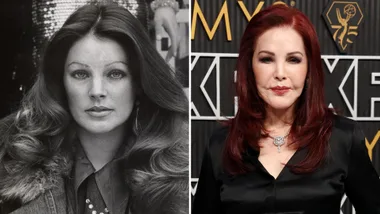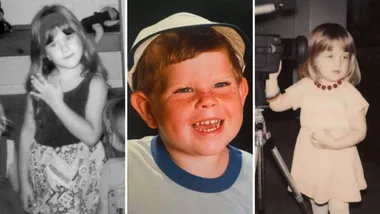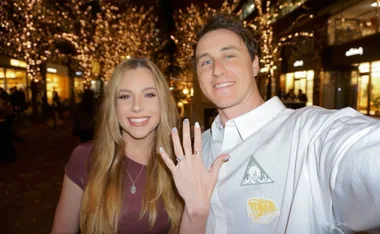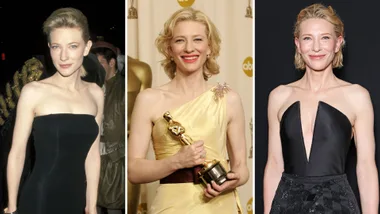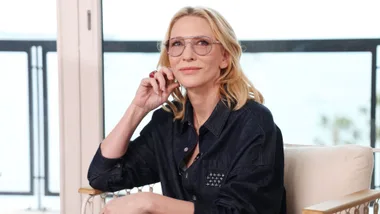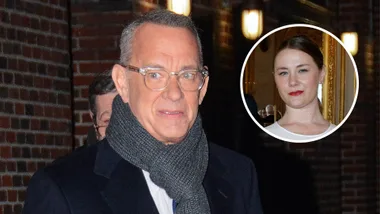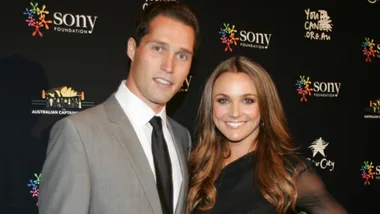Subjected to incalculable child abuse, Kim Noble’s young mind shattered into multiple personalities when she was just three years old. In an exclusive extract from her autobiography, this extraordinarily brave woman explains how she survived, became a mother and what it feels like to live a life literally in pieces.
Kim Noble was born on 21 November 1960. She grew up in Britain with her parents and sister and enjoyed an ordinary family upbringing.
Her parents both worked and, from a very early age, Kim was left with a number of childminders — although they weren’t called that in the 1960s.
True crime: Two wives, two murders, one killer
Sometimes it was family, sometimes neighbours, sometimes friends. Communities stepped in to help in those days. Most were kind and loving.
Some were different. They didn’t look after Kim Noble. They took advantage. They subjected baby Kim to painful, evil, sexual abuse. Regularly and consistently from the age of one.
Kim was helpless. She couldn’t speak. She couldn’t complain. She couldn’t fight. She didn’t even know that the abuse was wrong. But she did know it scared her. She knew it hurt.
Yet she was so small, so weak, so dependent on her abusers for so much, what could she possibly do? And then her young, infant mind found a way. If it couldn’t stop Kim’s physical pain, it could do the next best thing. It could hide.
At some point before her third birthday, Kim Noble’s mind shattered, like a glass dropped onto a hard floor. Shards, splinters, fragments, some tiny, some larger.
No two pieces the same, as individual as snowflakes. Ten, 20, 100, 200 pieces, where before there had been just one. And each of them a new mind, a new life to take Kim’s place in the world. To protect her.
At last, Kim Noble was happy. No one could find her now.
Chicago, September 2010. I never imagined the day I would find myself sitting in a television studio on the other side of the Atlantic.
I certainly never expected to be invited by the most powerful woman in world media, Oprah Winfrey, to appear during the final season of the planet’s leading chat show.
But here I am and, as I take my seat facing Oprah’s chair, I can barely contain my nerves. The most-watched program in America is about to be filmed and I am that episode’s star guest.
And yet, as soon as Oprah sits down opposite, my inhibitions disappear.
“Do you remember what happened to you as a child?”
Three hundred people fall suddenly silent. A few sharp intakes of breath. Then nothing, as they all crane forward expectantly for my reply.
“I remember parts of it,” I reply. “Not any abuse.”
Murmurs buzz around that vast hangar of a room. Oprah looks momentarily thrown. If you watch carefully you can almost see her thinking, I was told this woman had been abused!
Oprah maintains her composure. Then, ever the professional, she rephrases the question.
My answer is the same. “No one did anything to me.” But I know what she means and decide to help her out. “I have never been abused,” I clarify. “But this body has.” And then she understands.
Throughout our interview, Oprah referred to me as “Kim”. I don’t mind. I’ve grown up with people calling me that. It’s all I ever heard as a child, so it soon becomes normal.
I’ve grown up accepting lots of things that seemed normal at the time. Like finding myself in classrooms I didn’t remember travelling to, or speaking to people I didn’t recognise or employed doing jobs I hadn’t applied for.
Normal for me is driving to the shops and returning home with a boot full of groceries I didn’t want. It’s opening my wardrobe and discovering clothes I hadn’t bought or taking delivery of pizzas I didn’t order.
It’s finding the washing-up done a second after I’d finished using the pans. It’s ending up at the door to a men’s toilet and wondering why. It’s so many, many other things on a daily basis.
Crime: I’m haunted by my daughter’s murder
Oprah found it unimaginable. I doubt she was alone. I imagine millions of viewing Americans were thinking, “This is mad!”
After all, it’s not every day you meet someone who shares their body with more than 20 other people — and who still manages to be a mum to a beautiful, well-balanced teenaged daughter and an artist with many exhibitions to her name.
To me, this is normal.
© 2011 Kim Noble, extracted fromAll Of Me, published by Piatkus, $35.
Read more of this story in the October issue of The Australian Women’s Weekly.
Your say: Do you know anyone who suffers from a similar condition?

Video: Mental health for young people


